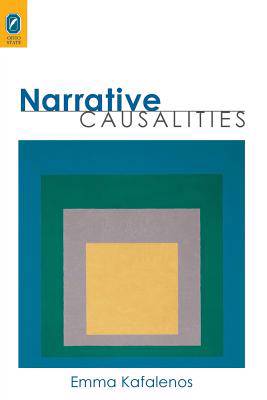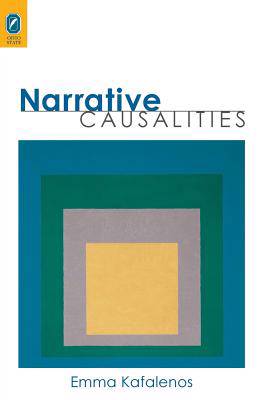
Bedankt voor het vertrouwen het afgelopen jaar! Om jou te bedanken bieden we GRATIS verzending (in België) aan op alles gedurende de hele maand januari.
- Afhalen na 1 uur in een winkel met voorraad
- Gratis thuislevering in België
- Ruim aanbod met 7 miljoen producten
Bedankt voor het vertrouwen het afgelopen jaar! Om jou te bedanken bieden we GRATIS verzending (in België) aan op alles gedurende de hele maand januari.
- Afhalen na 1 uur in een winkel met voorraad
- Gratis thuislevering in België
- Ruim aanbod met 7 miljoen producten
Zoeken
€ 33,45
+ 66 punten
Omschrijving
Narrative Causalities offers both an argument and a methodology. The argument is that interpretations of the consequences and causes of events are contextual and that narratives, by determining the context in which events are perceived, shape interpretations. The methodology, on which the argument is based, is a theory of functions. A function, in this theory, is a position in a causal sequence. A set of functions provides a vocabulary to analyze and compare interpretations of the causes and consequences of events-in our world, in narratives about our world, and in fictional narratives. Focusing throughout on the temporal dimension of the cognitive process, this study considers perceivers' interpretations of causality in response to nonfiction as well as to fiction, to visual as well as to verbal communication, and to events we perceive directly as well as to reported events. Many of the narratives analyzed are fictional and range from fairy tales to canonical literature (Shakespeare, Poe, Henry James, Kafka, Racine, Balzac) to recent novels (Robbe-Grillet, Sebald). But in the same ways that fictional narratives guide readers' interpretations of causality, so too, the author reminds and warns us, do the newspaper accounts, friends' stories, and other narratives through which we learn about events in our world. In other words, Emma Kafalenos seeks to answer the question: "What can we know if a narrative is the source of our information?" Her book is a significant addition to the Theory and Interpretation of Narrative Series.
Specificaties
Betrokkenen
- Auteur(s):
- Uitgeverij:
Inhoud
- Aantal bladzijden:
- 266
- Taal:
- Engels
- Reeks:
Eigenschappen
- Productcode (EAN):
- 9780814252529
- Verschijningsdatum:
- 2/06/2015
- Uitvoering:
- Paperback
- Formaat:
- Trade paperback (VS)
- Afmetingen:
- 152 mm x 229 mm
- Gewicht:
- 394 g

Alleen bij Standaard Boekhandel
+ 66 punten op je klantenkaart van Standaard Boekhandel
Beoordelingen
We publiceren alleen reviews die voldoen aan de voorwaarden voor reviews. Bekijk onze voorwaarden voor reviews.












